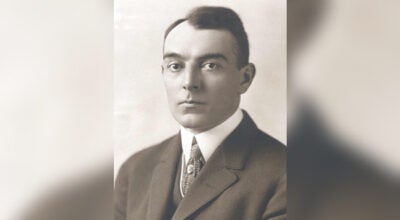Dowagiac council votes to lay off wastewater staff, replace with contractors
Published 9:53 am Wednesday, January 11, 2017

- (Leader photo/TED YOAKUM)
The entire four-person team operating the city’s wastewater treatment facility may soon find themselves out of a job.
In front a packed house inside its chambers, the Dowagiac City Council unanimously voted Monday to contract out the day-to-day operational services of the city’s sewage plant to Grand Rapid’s F&V Operations, effectively replacing the current city employees working at the facility. With the council’s blessing, the city will begin negotiating terms of the work agreement with the company, with the turnover occurring any time in the next 45 to 60 days, said City Manager Kevin Anderson.
The decision comes several weeks after city officials received an email from Infrastructure Alternatives Inc. — a company the city had contracted with in June to provide operational oversight and training for the facility — on Nov. 18, which stated the company would not renew its six-month agreement with the city. Staff with IAI said they faced resistance from city employees during their time assisting with the plant’s operations, with the message stating, “The staff has communicated with us on an as-needed basis only, and has felt we were invading their space since the start, and they have provided as little cooperation and attendance as they could throughout this time period,” according to a quote from the email in a memo Anderson provided to the council Monday.
“I have never, in my career, heard of a contracting firm that would refuse to take somebody’s money on principle,” said Mayor Don Lyons. “In this case, they said ‘you are wasting your money and we are wasting our time.’ That is a pretty tough pill to swallow.”
The city initially signed the agreement with IAI for its services following a study of the operation of the wastewater plant in April, conducted by the firm and engineers with Wightman and Associates Inc., after the city received a violation from the Michigan Department of Environmental Quality for not providing the proper number of water samples for quality testing in January. The study found several issues with the operation of the facility, which the contract with IAI was intended to rectify.
During the first three months of the company’s contract with the city, attendance became an issue for city plant employees, with the staff taking 232 hours of vacation, 23.5 hours of comp time, 35 hours of personal time, and 24 hours of sick time, according to Anderson’s memo.
Following IAI’s email in November, Anderson and other city leaders looked into alternative solutions for plant staffing, eventually deciding to recommend to council that the city contract services to a private firm. Not only would a private company be able to staff the facility with experienced employees relatively quickly, it would also take on liability for any future DEQ violations, such as paying for fines, Anderson said.
The city took bids from both IAI and FVOP for operational services for the next five years, with FVOP delivering annual cost estimates between $354,000 and $398,000, well below IAI’s range of $493,000 and $513,000. The former’s price tag is similar to the costs the city currently pays for operation of the wastewater plant, Anderson said.
Monday’s vote was met with heavy opposition, from not only employees of the wastewater facility but also members of the International Brotherhood of Electrical Workers Local 876, who represent city employees working at the plant.
One of the people who addressed the council was James Stevens, a city employee who was worked as an operator for the plant for the past six years, he said. Stevens asked the council to table the resolution, saying that the problems the plant has experienced were the result of understaffing and aging, failing equipment.
According to the plant’s original operation manual, created in 1977, a seven-person staff was intended to staff the facility — however, a four-person team has handled work for at least 20 years, if not more, in spite of handling water treatment for not just the city of Dowagiac but for several other municipalities, Stevens said.
In addition, while the city has spent $2.2 million in improvements to the more than 30-year-old facility, many challenges with equipment remain, he said.
Stevens said any DEQ violations could be laid at the feet of city management, as he and others have reported their complaints to the city, and were told to “work with what we had.”
“As a Dowagiac citizen, I care as much, if not more, than any of you about the safety of our drinking water,” Stevens said. “I have done everything in my power to ensure it is safe. The question you must ask is if those in a position of power do the same.”
Per FVOP’s proposal to the city, Stevens and the other city employees will be given the opportunity to join the new company, although the exact terms of that agreement will be worked out when the city develops its contract with the firm, Anderson said. In addition, the present plant employees may have the chance to stay on with the city, in another department.
While Stevens said he would consider staying on with the city following Monday’s vote, he said that the accusations leveled against him and other wastewater plant employees by council and IAI were false, and that they cooperated with the contractors during their time at the facility.
“We are not bad guys,” Stevens said, following the vote. “That is what hurts us the most about this decision. They are saying we could not get along with each other. That just is not true.”





